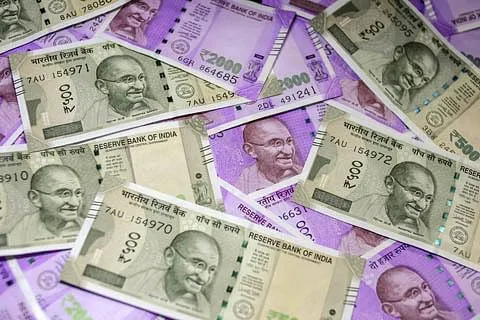Srinagar: The economy of the Union Territory of Jammu and Kashmir is largely agriculture-dependent and approximately 70 percent of the population is directly or indirectly engaged in agriculture and allied sectors.
Out of a multitude of crops grown in J&K, rice is a staple crop, both in Kashmir and Jammu divisions, sown in summer (May) and harvested in late September.
In addition to rice, corn, millets, pulses, and vegetables like peas, beans, lentils etc. are also grown during the summer season. Wheat is another staple crop and along with barley is planted in winter and harvested in the spring season.
Among all States /UTs, Jammu and Kashmir has been ranked 3rd in monthly income to Agriculture households and 5th best performing State /UT in Agriculture & Allied sector.
More than a million beneficiaries from J&K received direct financial support of Rs. 1983.29 crores during the last three years under the PM-Kisan scheme. 12 lakh farmers have been issued Kisan Credit Cards (KCC). Out of this 9.46 lakh KCC are live/operative in UT of J&K.
Muhammad Ashraf, a farmer from Pulwama is elated to share his success story of High-Density Apple Plantation.
“My family has been involved in in the business of apple cultivation for past more than 50 years and the income realization from per kanal of land was dwindling for past one decade primarily due to lowering the productivity of aged apple trees”, he said.
He adds that while my family was upset over the declining yield and falling incomes, we came to know about the High-Density Apple Plantation Scheme by the J&K government.
“About 3 years back, I experimented with around 7 Kanals of land under the new High-density Apple plantation with support from Horticulture department and it produced more than 15Kg of fruit per plant, which was a substantial rise as compared to the earlier scenario”, he says.
Ashraf has now planted 1000 more high-density plants in another 7 Kanals about a year ago and encourages others too to take benefit of the scheme. “Apart from higher-income per Kanal of land, I am able to provide gainful employment to 5-7 families as well”, he said.
Under National Saffron Mission, irrigation infrastructure with a sprinkler systems connected to 126 deep Bore wells has been created. An area of 2598.75 Ha of land stands rejuvenated as on date.
The implementation of National Mission on Saffron has ensured substantial increase in the crop yields from 1.88 kg per hectare to 4.50 kg per hectare which has ultimately doubled the income of Saffron Growers.
The J&K Government has successfully got the G.I tagging for Saffron and Basmati for effective domestic and international marketing. The registration for G.I tagging for Guchhi (Morchella), Solai Honey, Rajmash (Red Beans) and Muskhbudji is also in the pipeline. It will promote the economic prosperity of the farmers by enhancing their demand in National and International Markets.
The J&K government has also established two J&K Seed and Organic Certification agencies, one each in Jammu and Kashmir Division. More so, the government also facilitated the opening of the Offices of APEDA and LULU Groups in the Kashmir Division and APEDA in the Jammu Division.
In J&K, Oilseeds have been sown over 1.10 lakh Ha of land. Kashmiri Lal Mirch is being harvested on 1182 Ha, Sweet Corn harvested on 165 Ha, while other exotic vegetables have been harvested over 150 Ha and farmers are getting massive returns out of them.
Similarly, sericulture (cultivation of silk) is widespread across the region. As per the Sericulture Policy 2020 of J&K, the mulberry silk production in the UT accounts only for 0.66 percent of the total mulberry silk production of India. Silk is an elite product in itself and the government is rapidly addressing the issues of the people involved in sericulture sector.
Mechanization of farming is an essential step to transforming the agriculture sector which will help farmers to produce more.
As a part of agricultural mechanization support to the farmers for broader economic transformation, the Lieutenant Governor handed over sanction letters for 100 tractors to the farmers and 1035 threshers for local panchayats.
The government is also setting up Custom Hiring centres and Farm Machinery Banks in different parts of the union territory. As many as 207 Custom Hiring Centres (CHCs) and 163 Farm Machinery Banks (FMBs) have been started so far.
To raise awareness among the farmers about the use of technological equipment in agriculture, one paddy thresher is being given to all 4290 panchayats free of cost in UT of J&K. Out of 4290 panchayats, 3362 threshers have been distributed to the panchayats till date.
Achieving an incredible milestone, for the first time, more than 2000 trucks of vegetables have been exported from Jammu and Kashmir to different parts of the country. With a yield of 70 quintals for hectares of paddy, J&K has accomplished a top position in the entire country.






